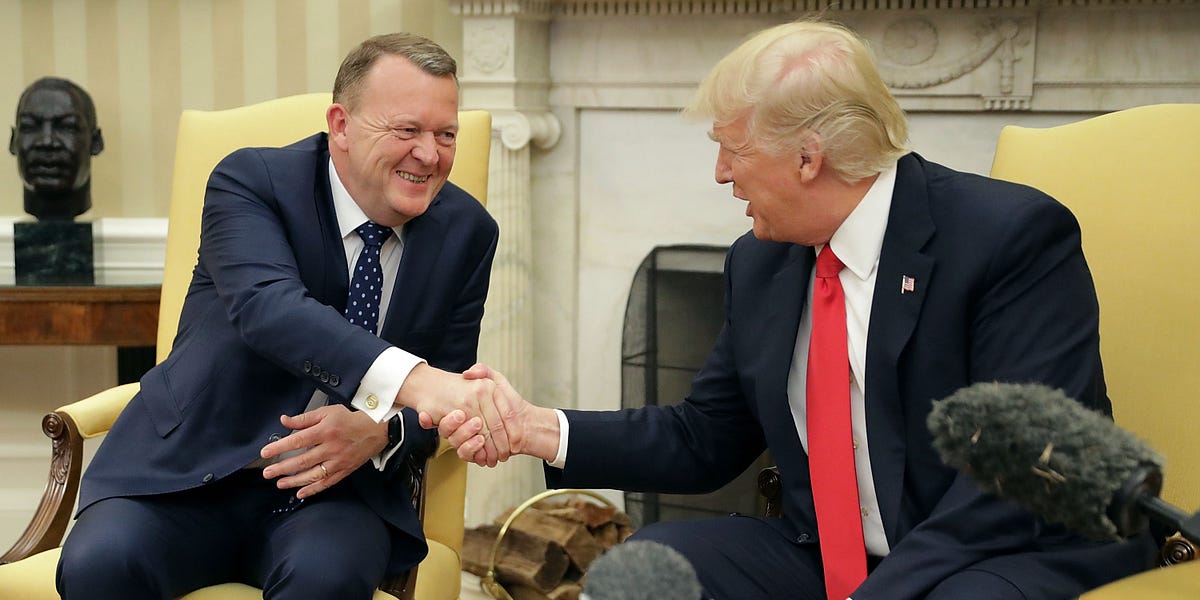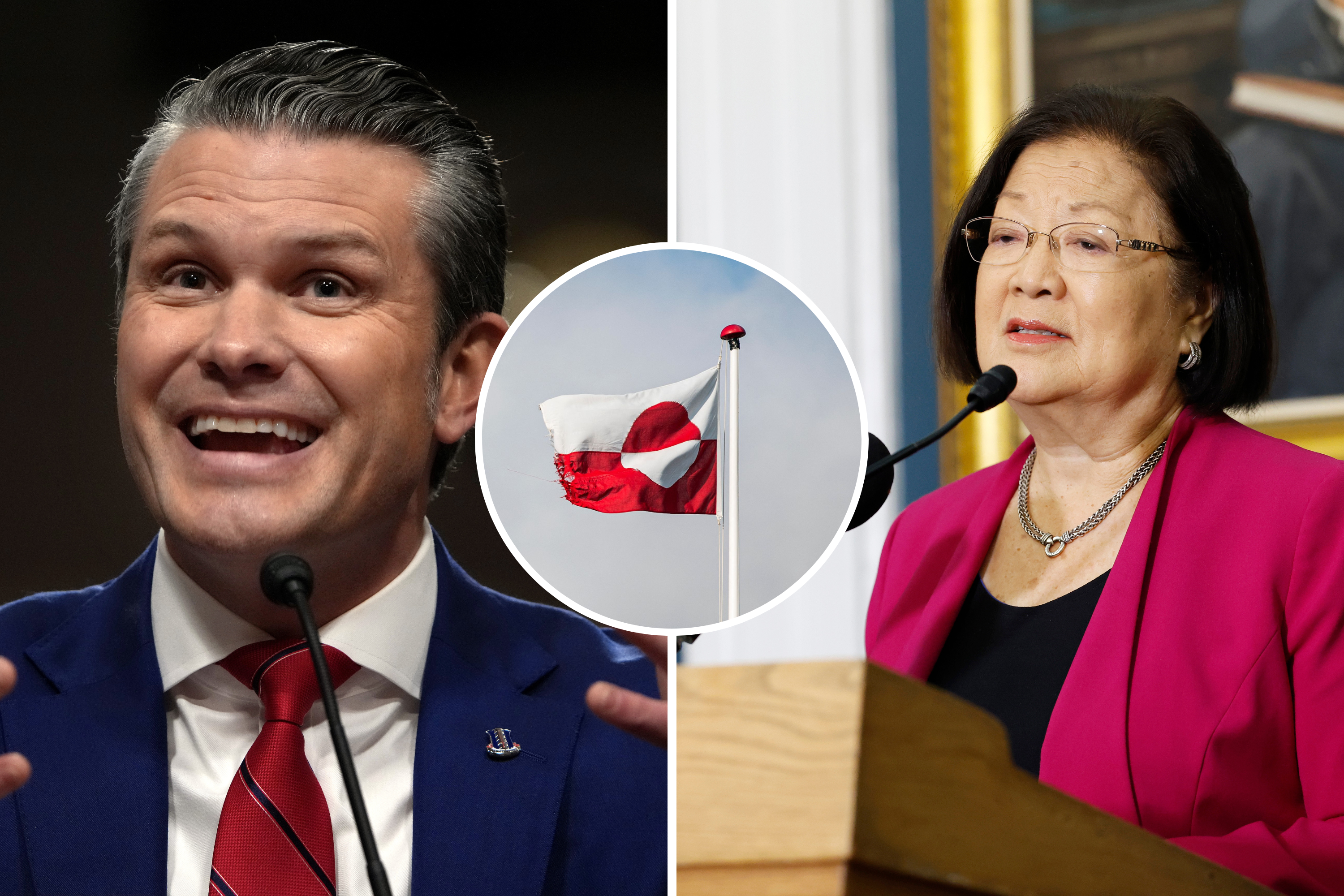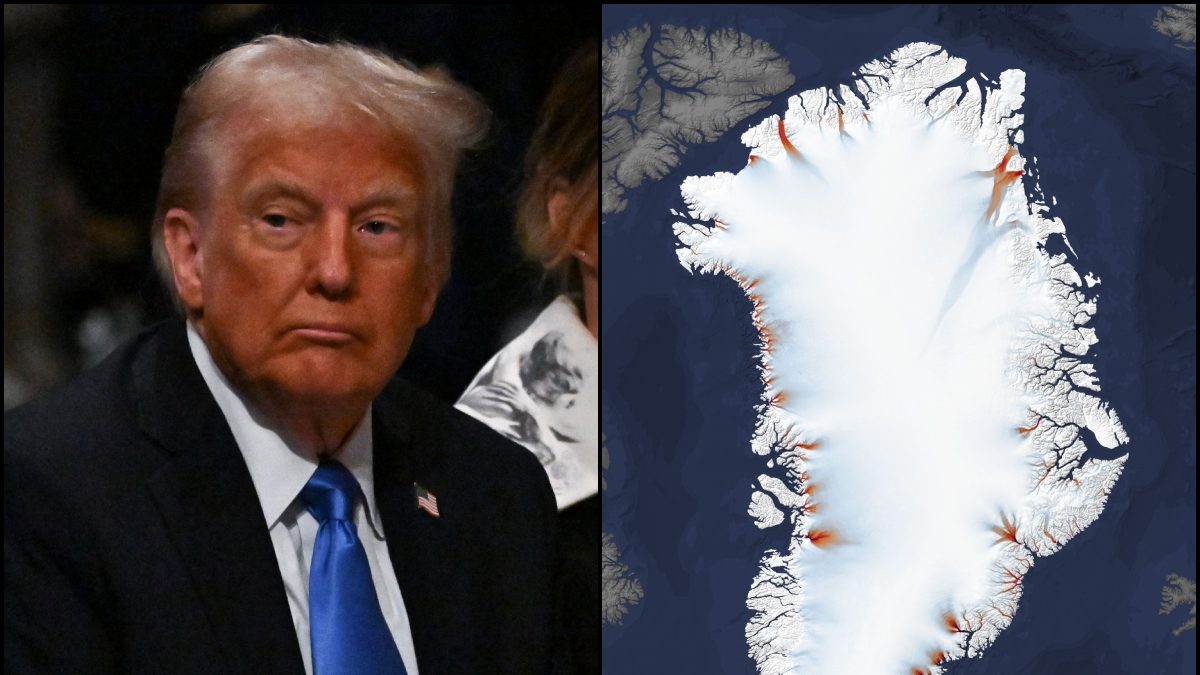/tpg%2F960639f8-5c48-4f81-9c5d-1d34f4d47f67.jpeg)















Tensions surrounding U.S. foreign policy and territorial ambitions continue to escalate, particularly regarding Greenland and Canada. A recent poll revealed that 46% of Danes view the United States as a significant threat, surpassing the 44% who see North Korea similarly. This perception comes amidst ongoing controversies surrounding President Donald Trump's interest in acquiring Greenland, which has been firmly rejected by Danish officials [d1d04e88].
On January 15, 2025, Trump pressured Danish Prime Minister Mette Frederiksen regarding the sale of Greenland, asserting that the acquisition relates to 'freedom of the world.' However, 78% of Danes oppose selling Greenland, and Denmark's Foreign Minister Lars Løkke Rasmussen reiterated that Greenland will not be sold [d1d04e88]. Greenland, which has a population of approximately 57,000 residents, is seen as a strategic asset due to its rich natural resources and location [d1d04e88].
Robert Brieger, chairman of the European Union Military Committee, recently stated that it would make sense to station EU troops in Greenland, highlighting its strategic importance in relation to U.S. military systems. He noted that climate change is exacerbating tensions with Russia and China over the Arctic region, making a military presence more relevant [297e1426]. This development comes on the heels of Trump's Senate confirmation hearing for Pete Hegseth, where concerns about military aggression were raised regarding Trump's ambitions for Greenland and the Panama Canal [fde4011c].
Trump's administration has long highlighted the significance of securing resources in the Arctic. The focus on Greenland has been a recurring theme since Trump's initial proposal to purchase the territory in 2019, which was firmly rejected by Danish Prime Minister Mette Frederiksen, who stated, 'Greenland is ours. We are not for sale' [51f01a4b]. Hegseth's confirmation process may face challenges, particularly if concerns about military aggression persist among senators [fde4011c].
On January 7, 2025, Trump outlined his ambitious territorial proposals at a press conference, including the potential acquisition of Greenland and the retaking of the Panama Canal. He argued that these territories are crucial for U.S. national security, stating, 'It might be necessary to take some action' [3ff7a8ee]. He also suggested a merger with Canada, which was promptly rejected by Canadian Prime Minister Justin Trudeau [714e0476]. In a further reflection of his imperialist tendencies, Representative Andy Ogles introduced the 'Make Greenland Great Again Act' aimed at negotiating the acquisition of Greenland, which is rich in mineral resources [995d0af7].
Trump has expressed that acquiring Greenland is essential for U.S. national defense and has not ruled out military or economic action to achieve this goal [5bd90fae]. Meanwhile, U.S. Representative Dusty Johnson introduced the Panama Canal Repurchase Act, which aims to authorize negotiations for the U.S. to regain control of the canal, highlighting concerns over China's influence in the region [1b299d5b].
In a recent interview, researcher Ali Semin discussed Trump's ambitions regarding Canada, noting that the U.S. cannot annex Canada even if Trump desires it. Semin argued that such an annexation would contradict international law and is unlikely to happen, drawing comparisons between Trump's approach and Russia's annexation of Crimea [f7934913].
Critics, including Michael Hudson, argue that Trump's approach to Greenland reflects a broader pattern of U.S. economic colonialism. Hudson contends that Trump's national security rationale masks an intention to control Greenland's natural resources and strategic sea lanes, drawing parallels to historical U.S. interventions [2cff2908]. He warns of potential economic chaos in Europe due to reliance on the dollar and American demands, especially as the liberal world order faces challenges from rising political populism, nationalism, and protectionism [995d0af7].
In January 2025, Kristen Thomason from Baptist News Global highlighted that Trump's proposal to acquire Greenland is part of a broader strategy to reboot American imperialism, drawing parallels to historical events from the late 19th century. The article notes that Trump's campaign is heavily funded by billionaires and corporations, with over $500 million in donations expected by summer 2025. Greenland's rich resources, including lithium and rare earth elements, make it a target for U.S. interests amid geopolitical tensions with China. The Kalaallit people, who make up 89% of Greenland's population, express skepticism towards Trump's intentions, advocating for independence and environmental protection [19ef9455].
Greenland's Prime Minister Múte Egede has been vocal about the island's aspirations for autonomy, emphasizing that any discussions regarding its future must respect its independence movement [35db415b]. The ongoing situation has drawn parallels to the U.S. support for Ukraine against Russian aggression, raising questions about the consistency of U.S. foreign policy and its commitment to the principle of equal sovereignty for smaller nations [a7ef6eb5].
In a recent opinion piece, H.M. Nazmul Alam criticized Trump's proposals as emblematic of a misunderstanding of sovereignty and diplomacy, suggesting that these territories symbolize resilience and history rather than commodities to be traded or seized [901c8c24]. As the geopolitical landscape shifts, Trump's aggressive proposals and Hegseth's confirmation hearing raise critical questions about U.S. foreign relations and military policy moving forward [3ff7a8ee].
Nicholas Grossman warns that Trump's threats to U.S. allies like Denmark, Canada, and Panama undermine U.S. interests. He emphasizes that allies provide essential resources, knowledge, and economic benefits, and that U.S. military dominance in Greenland has been established since 1951. Grossman also points out that Canada is a key trade partner and ally, and that Trump's claims regarding Chinese control of the Panama Canal are unfounded, as the canal has been under Panamanian control since 1999. He warns that military control of the canal would be costly and stresses the importance of maintaining friendly relationships with allies for U.S. power [c57285f8].
In a broader historical context, Tyler Cowen recently analyzed the U.S. purchase of the Danish West Indies in 1917 for $25 million, arguing that it may have been more beneficial for Denmark than the U.S. He suggests that the U.S. could have leveraged the Monroe Doctrine instead of pursuing territorial ownership. Cowen posits that negotiating military rights in Greenland might be more advantageous than maintaining ownership of the Virgin Islands, which now hold tourism value but question the necessity of U.S. ownership [13999086].